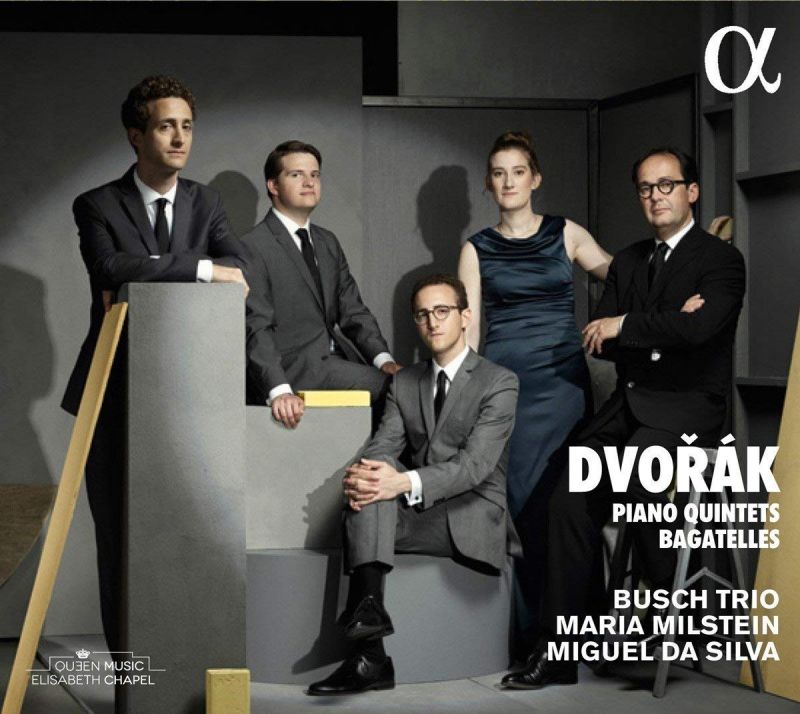DVOŘÁK Piano Quintets. Bagatelles
View record and artist detailsRecord and Artist Details
Composer or Director: Antonín Dvořák
Genre:
Chamber
Label: Alpha
Magazine Review Date: 09/2018
Media Format: CD or Download
Media Runtime: 81
Mastering:
DDD
Catalogue Number: ALPHA403

Tracks:
| Composition | Artist Credit |
|---|---|
| Quintet for Piano and Strings |
Antonín Dvořák, Composer
Antonín Dvořák, Composer Busch Trio Maria Milstein, Violin Miguel da Silva, Viola |
| Bagatelles |
Antonín Dvořák, Composer
Antonín Dvořák, Composer Busch Trio Maria Milstein, Violin Miguel da Silva, Viola |
Author: Harriet Smith
By way of a bonus, we also get the Bagatelles, Op 47, originally written for harmonium. They are smiling, good-natured pieces for domestic use and they sound very effective in this arrangement. The first piece is quietly catchy, while the last is a rollickingly good natured Poco allegro.
But the main act here is the Second Quintet, indubitable masterpiece that it is. The opening cello theme tells us much about a group’s approach. The Busch’s Ori Epstein shapes it with care, allowing it to unfold unhurriedly, to which the other players respond with warmth though with less extremes of dynamics than some. The Pavel Haas Quartet and Giltburg hold things back still more in the opening but then inject the music with a pulsing energy that is very dramatic, while the Elias (with Biss) colour the lines with plentiful portamentos. Compared to them, the Busch et al are just a little more careful-sounding, though ultimately this is a matter of personal taste.
The glorious Dumka that forms the second movement has plenty of intensity in this new recording, the viola launching matters with due solemnity, and as it continues, there’s a nice sense of interplay and responsiveness between the musicians. They’re a touch slower-moving and slightly less withdrawn than the Elias/Biss at the outset. To my mind, no one quite captures the character of this movement as vividly as the PHQ with Giltburg. The latter group lead off on the merriest of dances in the following Furiant but the Busch find comparable glee here, with a lithe playfulness that gives a brilliant shine to the proceedings. The finale goes with a will – yet the Busch also relish the more fined-down moments and judge the holding-back before the final bars to a nicety.
This is one of the best things I’ve yet heard from the Busch in their evolving Dvořák series, naturally recorded, with first-rate notes from Jan Smaczny.
Discover the world's largest classical music catalogue with Presto Music.

Gramophone Digital Club
- Digital Edition
- Digital Archive
- Reviews Database
- Full website access
From £8.75 / month
Subscribe
Gramophone Full Club
- Print Edition
- Digital Edition
- Digital Archive
- Reviews Database
- Full website access
From £11.00 / month
Subscribe
If you are a library, university or other organisation that would be interested in an institutional subscription to Gramophone please click here for further information.




